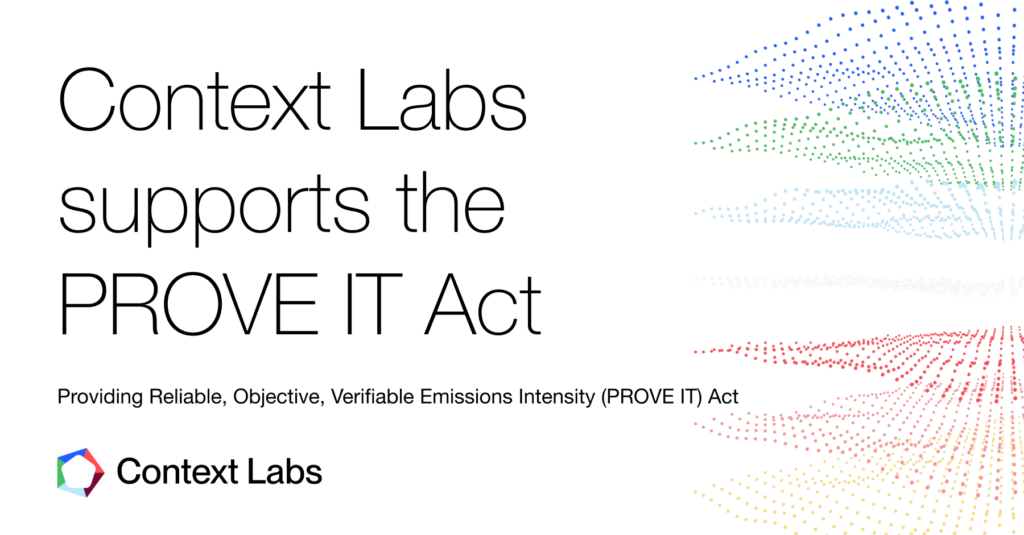On July 9, Representatives John Curtis (R-UT) and Scott Peters (D-CA) introduced a House version of the Providing Reliable, Objective, Verifiable Emissions Intensity (PROVE IT) Act, with 19 bipartisan co-sponsors. The bill directs the Department of Energy (DOE) to study the carbon intensity of certain industrial products produced in or imported into the U.S., including high-emissions products such as aluminum, cement, crude oil, and natural gas.
Countries are increasingly looking to trade policy as a tool to meet climate goals. Carbon tariffs like the European Union’s (EU) Cross Border Adjustment Mechanism (CBAM) establish fees meant to protect cleaner domestic producers and incentivize emissions reductions among trading partners.
The PROVE IT Act does not set such a tax.; It creates a standardized system for carbon intensity data collection and reporting. The first DOE study of emissions on covered products will be due two years after passage of final legislation, and must be revised at least every five years thereafter. As other economies impose or consider carbon taxes on imports it will be essential for U.S. industry to have accurate carbon intensity data in negotiations with trading partners.
Increased market traction for differentiated natural gas proves that high-quality emissions data is already in demand in the absence of a carbon tax. Quantification technology like Context Labs’ Decarbonization as a Service (DaaS™) scalable carbon performance management solution and CLEAR Path™ verifiable environmental attribute registry drive accurate, measurement-based, verifiable emissions data. Differentiated gas backed by this robust and trusted data earns a market premium for companies looking to reduce emissions, and increasingly will become vital for gaining access to foreign markets.

A Senate version of the bill introduced by Chris Coons (D-DE) and Kevin Cramer (R-ND) passed the Environment and Public Works committee in January. At a Capitol Hill event announcing the House introduction, Congressional staffers and trade policy experts expressed optimism that the legislation will proceed in the next Congress.
Context Labs supports the PROVE IT Act as an essential step in providing an official, government-backed source for proving the superior performance of U.S. industry. If enacted, Context Labs staff will work with our colleagues at DOE to ensure the study establishes the highest possible level of emissions data integrity.
Reach out to learn more.